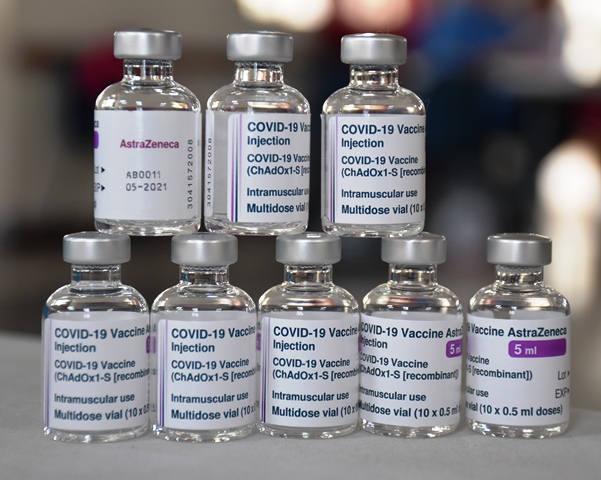18 March 2021
The Health Directorate are aware of concerns within the community regarding the International news coverage of European countries having paused their vaccine rollouts, due to investigations on whether the AstraZeneca Vaccine is related to cases of vaccinated person’s developing blood clots.
Due to the varying cases occurring within various countries across Europe, the European Medicines Agency (EMA) has had to investigate the cases as a matter of protocol. Investigating any reported observation is a common process in monitoring the safety of any new medical product. This is not limited to vaccines, and involves all medicines. The St Helena Health Directorate are also required to report to the UK any observations made after delivery of COVID-19 vaccinations, or any findings, that are not listed as known side effects, observed during clinical trials.
EMA has stated “while its investigation is ongoing, EMA currently remains of the view that the benefits of the AstraZeneca vaccine in preventing COVID-19, with its associated risk of hospitalisation and death, outweigh the risks of side effects”. The EMA will issue a recommendation, after reviewing the data presented around blood clots, by the end of this week.
The World Health Organisation (WHO) has also stated that there is no evidence linking the Oxford AstraZeneca vaccine to blood clots, and has urged countries not to pause COVID vaccinations. WHO spokesman Christian Lindmeier told BBC news:
“As of today (16 March), there is no evidence that the incidents are caused by the vaccine and it is important that vaccination campaigns continue so that we can save lives and stem severe disease from the virus.”
Blood clots can occur naturally and are not uncommon. The number of blood clots that have been reported in Europe are not above the numbers that would be expected to occur ordinarily, regardless of whether someone has been vaccinated. AstraZeneca has stated “about 17 million people in the EU and the UK have received a dose of the vaccine, with fewer than 40 cases of blood clots reported as of last week”.
The Health Directorate will continue to monitor the situation closely, but our priority to vaccinate as high a proportion of the population as possible remains, and therefore our Vaccination Programme will continue.
So far 3,300 people have received the first dose of the vaccine on St Helena. A small proportion of these have experienced known side-effects from the vaccine. Symptoms have generally been mild and have lasted 24-48 hours.
Protect yourself to protect St Helena.
SHG
18 March 2021
